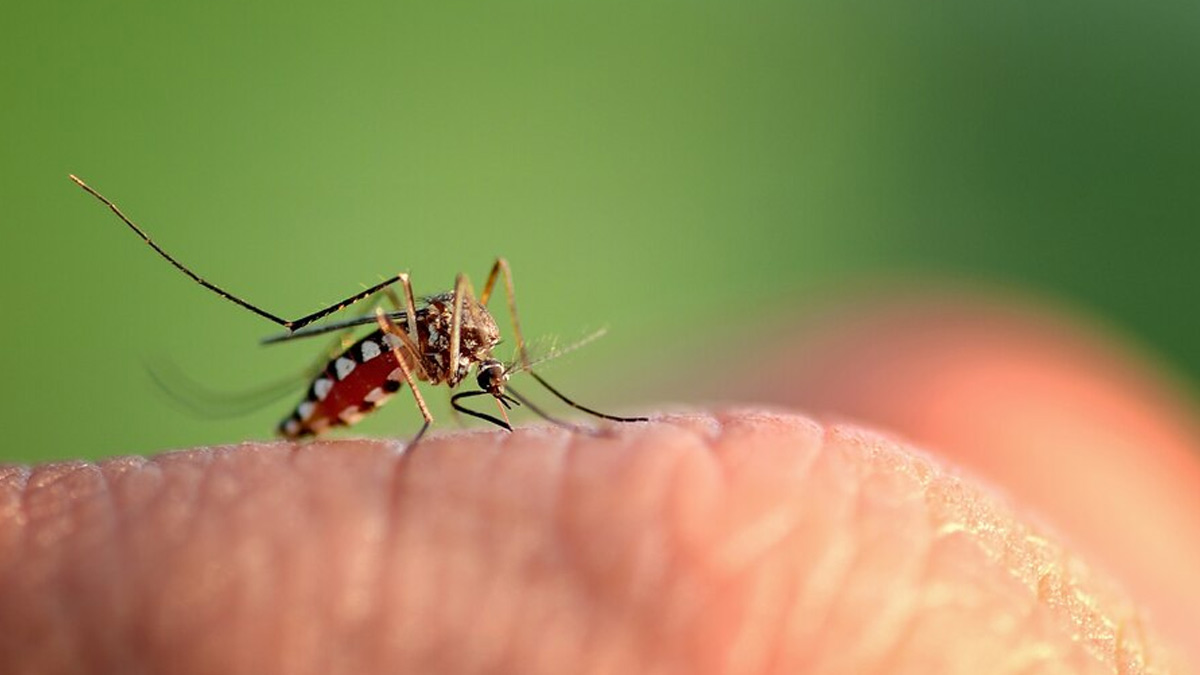
With the onset of monsoon, there is a much-needed relief from the scorching heat, however, the risk of mosquito-borne diseases, such as dengue also ranges high. Dengue, a viral infection transmitted by Aedes mosquitoes, thrives in warm, humid conditions, making the monsoon season a critical period for prevention and control. We spoke to Dr Kiran Dhake, Corporate Wellness Physician, Mumbai, who explained dengue and listed effective safety measures to help mitigate the risk and protect your health.
Table of Content:-
What Is Dengue?

According to the World Health Organization, dengue, also known as break-bone fever, is a viral infection transmitted by mosquitoes to humans. Currently, about half of the global population is at risk of dengue, with an estimated 100–400 million infections occurring annually. Although many dengue infections are asymptomatic or result in mild illness, the virus can sometimes lead to severe cases and even death.
Dr Dhake said, "These mosquitoes are most active during the day, with peak biting periods early in the morning and before dusk. The signs of dengue fever include elevated body temperature, intense head pain, discomfort behind the eyes, nausea/vomiting, joint and muscle aches, skin rash, and minor bleeding (like nose or gum bleeding, or easy bruising)."
In severe cases, dengue can develop into Dengue Haemorrhagic Fever (DHF) or Dengue Shock Syndrome (DSS), both of which can be life-threatening. Therefore, preventing mosquito bites and reducing mosquito breeding grounds are essential to stay safe during the monsoon season.
Preventive Measures to Stay Safe
Eliminate Standing Water

"It's important to get rid of possible breeding sites because Aedes mosquitoes lay eggs in stagnant water. Regularly check your surroundings for containers that collect water, such as flower pots, buckets, discarded tyres, overhead tanks, rooftop water storage, and clogged gutters. Empty and clean these containers frequently to prevent mosquitoes from laying eggs," added Dr Dhake.
According to a 2017 study, the most frequently reported dengue prevention activities include eliminating standing water (37.9%), covering water containers (37.9%), and applying chemicals to standing water (25.6%).
Use Mosquito Repellents
"Remember to use mosquito repellent on both your skin and clothes. Look for products with DEET, picaridin, or oil of lemon eucalyptus, as they are effective in keeping mosquitoes away. Also, reapply as directed, especially after sweating or exposure to water," said Dr Dhake.
Also Read: Dengue Alert! Natural Mosquito Repellents That Can Prevent Infections
Install Screens and Use Mosquito Nets
Another thing that you should do is ensure that windows and doors are fitted with screens to keep mosquitoes out. Use mosquito nets over beds, especially for infants and young children, to provide an additional layer of protection during sleep.

Use Mosquito Coils and Vaporisers
Mosquito coils and electric vaporisers can be effective in repelling mosquitoes indoors. Therefore, utilise these goods in well-ventilated places and pay close attention to the directions provided by the manufacturer.
Wear Protective Clothing
During peak mosquito activity periods, wear long-sleeved shirts, long pants, socks, and shoes to minimise exposed skin. Light-coloured clothing is less attractive to mosquitoes compared to dark-coloured clothing.
Keep Your Environment Clean
It is essential to maintain cleanliness in and around your home. Dispose of garbage properly and ensure that water storage containers are covered. Regularly change the water in vases and pet bowls to prevent mosquito breeding. Other breeding sites include coconut shells, discarded cardboard boxes, disposable plastic and porcelain containers.
Stay Informed and Educated
Stay informed about dengue outbreaks in your area through local health department advisories. Educate yourself and your family about the symptoms of dengue fever and the importance of seeking medical attention if symptoms develop.
Community Efforts in Dengue Prevention
"Individual efforts alone may not be sufficient to combat dengue. Community-wide initiatives are essential to create a mosquito-free environment. Participate in local clean-up drives and community awareness programs. Encourage neighbours to follow preventive measures and report potential mosquito breeding sites to local authorities. Also, formulation of the strategies for vector control in the prevalent areas should be implemented," said Dr Dhake.
Bottomline
Dr Dhake concluded, "If you or a family member develop symptoms of dengue, seek medical attention promptly. Early diagnosis and proper medical care can significantly reduce the risk of severe complications. There is no specific treatment for dengue, but supportive care can help manage symptoms and aid recovery. Stay hydrated, rest, and follow your healthcare provider’s advice."
[Disclaimer: This article contains information provided by an expert and is for informational purposes only. Hence, we advise you to consult your own professional if you are dealing with any health issues to avoid complications.]
Also watch this video
How we keep this article up to date:
We work with experts and keep a close eye on the latest in health and wellness. Whenever there is a new research or helpful information, we update our articles with accurate and useful advice.
Current Version